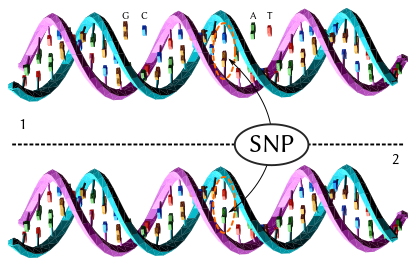Epub: Watson CT, Disanto G, Breden F, Giovannoni G, Ramagopalan SV. Estimating the proportion of variation in susceptibility to multiple sclerosis captured by common SNPs. Sci Rep. 2012;2:770. Epub 2012 Oct 25.
Multiple sclerosis (MS) is a complex disease with underlying genetic and environmental factors. Although the contribution of alleles within the major histocompatibility complex (MHC) are known to exert strong effects on MS risk, much remains to be learned about the contributions of loci with more modest effects identified by genome-wide association studies (GWASs), as well as loci that remain undiscovered. We use a recently developed method to estimate the proportion of variance in disease liability explained by 475,806 single nucleotide polymorphisms (SNPs) genotyped in 1,854 MS cases and 5,164 controls. We reveal that ~30% of MS genetic liability is explained by SNPs in this dataset, the majority of which is accounted for by common variants. These results suggest that the unaccounted for proportion could be explained by variants that are in imperfect linkage disequilibrium with common GWAS SNPs, highlighting the potential importance of rare variants in the susceptibility to MS.
"Genome-wide association studies have been performed in MS to try and find disease associated genes. These studies typically test hundreds of thousands of markers at a time, and only those that are statistically significant after correcting for testing for all of these markers are given further attention. There are about 60 of these markers that currently pass this statistical threshold, and together they explain about 1% of the genetic basis of MS. Using new statistical methodology, we looked at more than 475000 markers and asked how much of the genetics of MS is explained by all of them together. Surprisingly, this was only 30%. Much therefore remains to be understood about MS genetics. Rare variants (variants only seen in less than 1% of the population and not really tested in the current study) are likely to play a big role in future studies".
CoI: This is the work of Team G.
